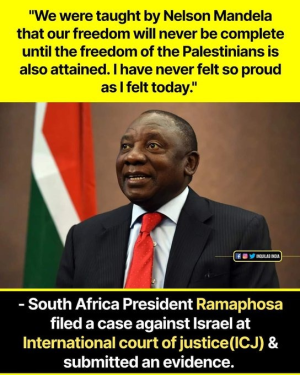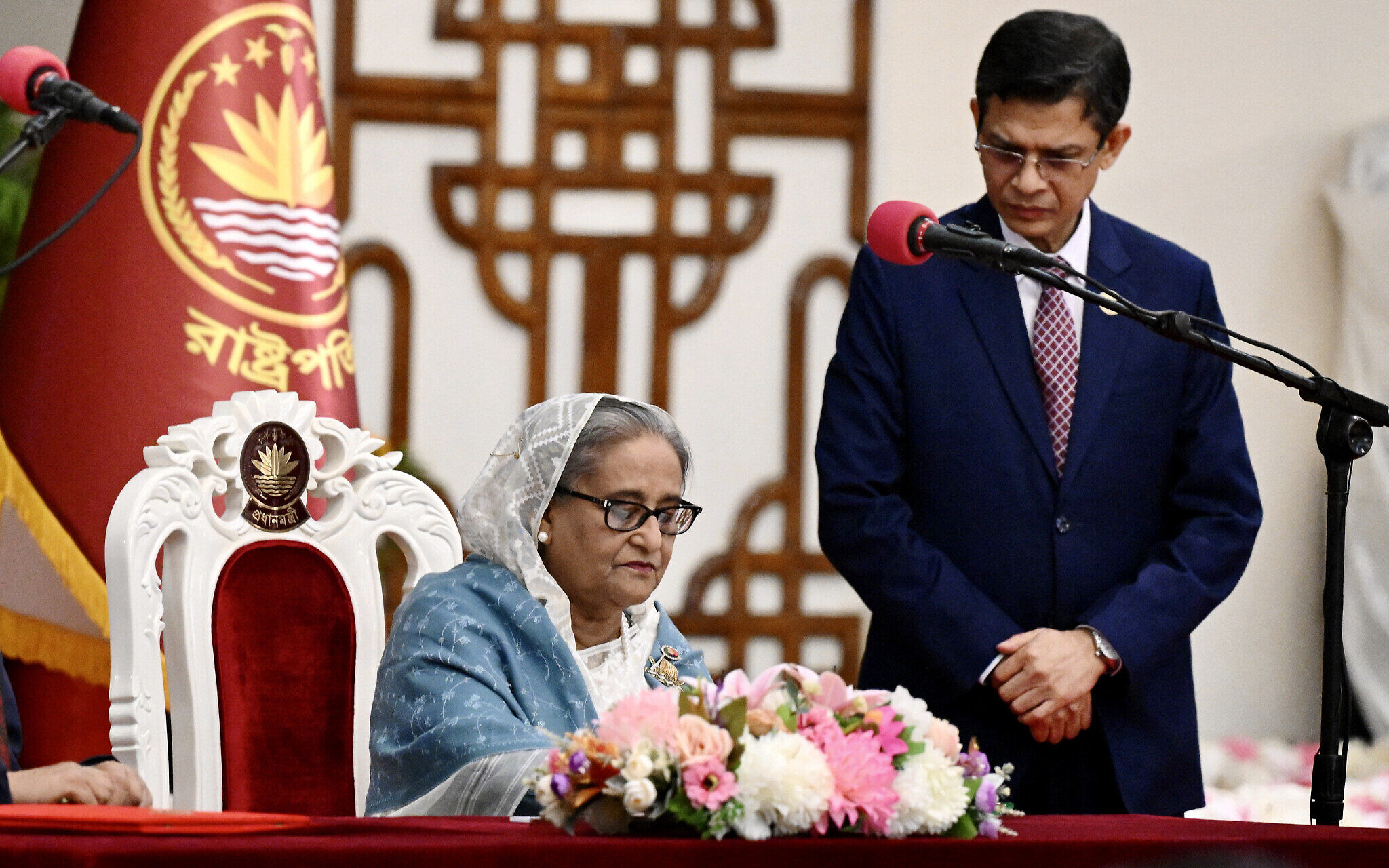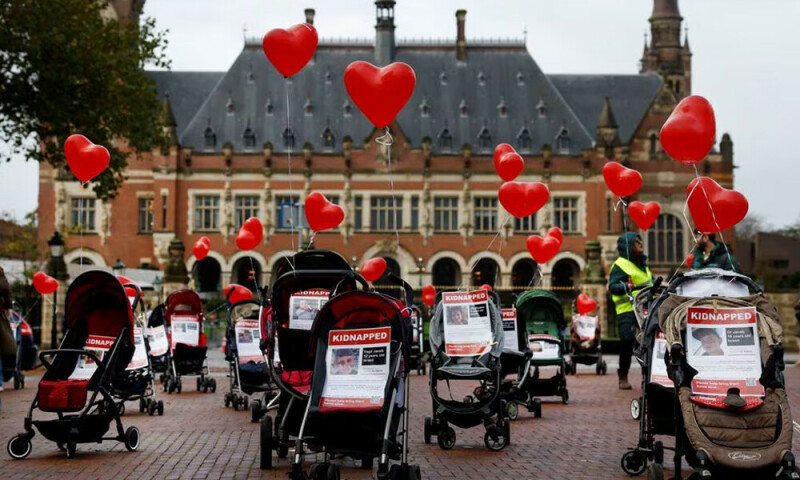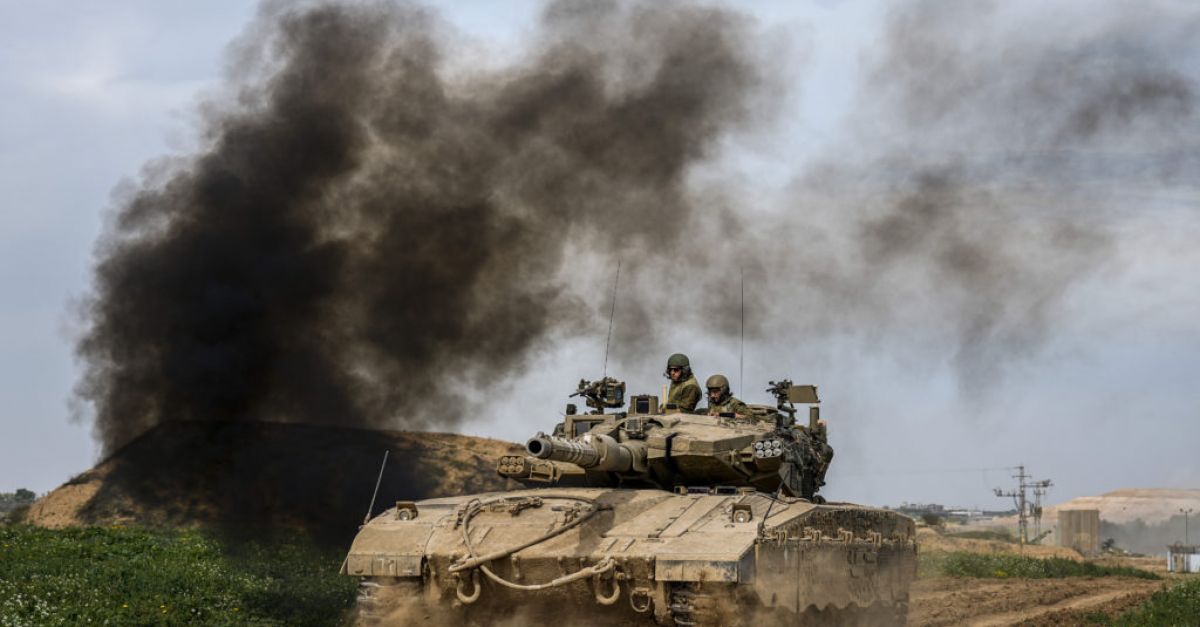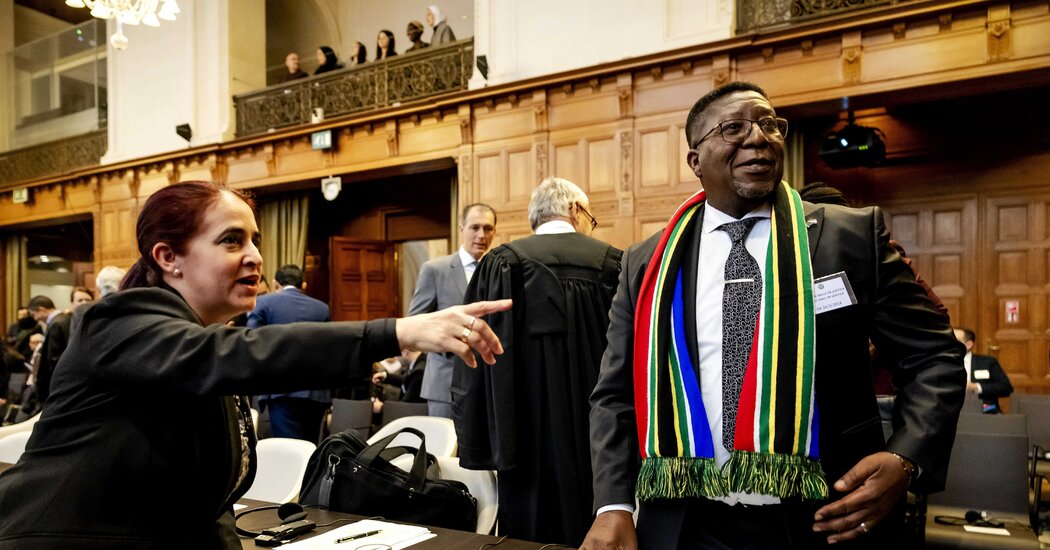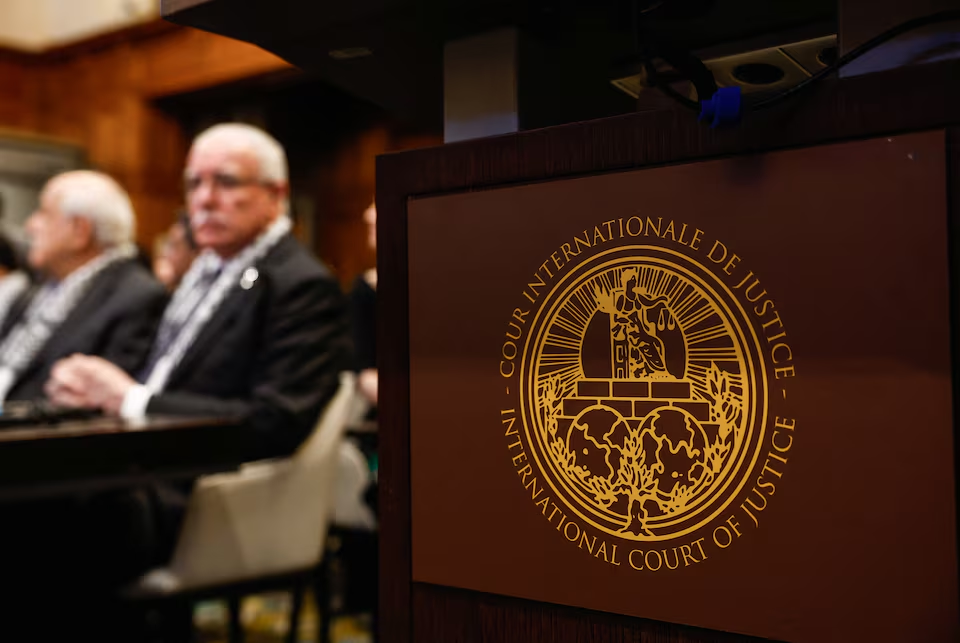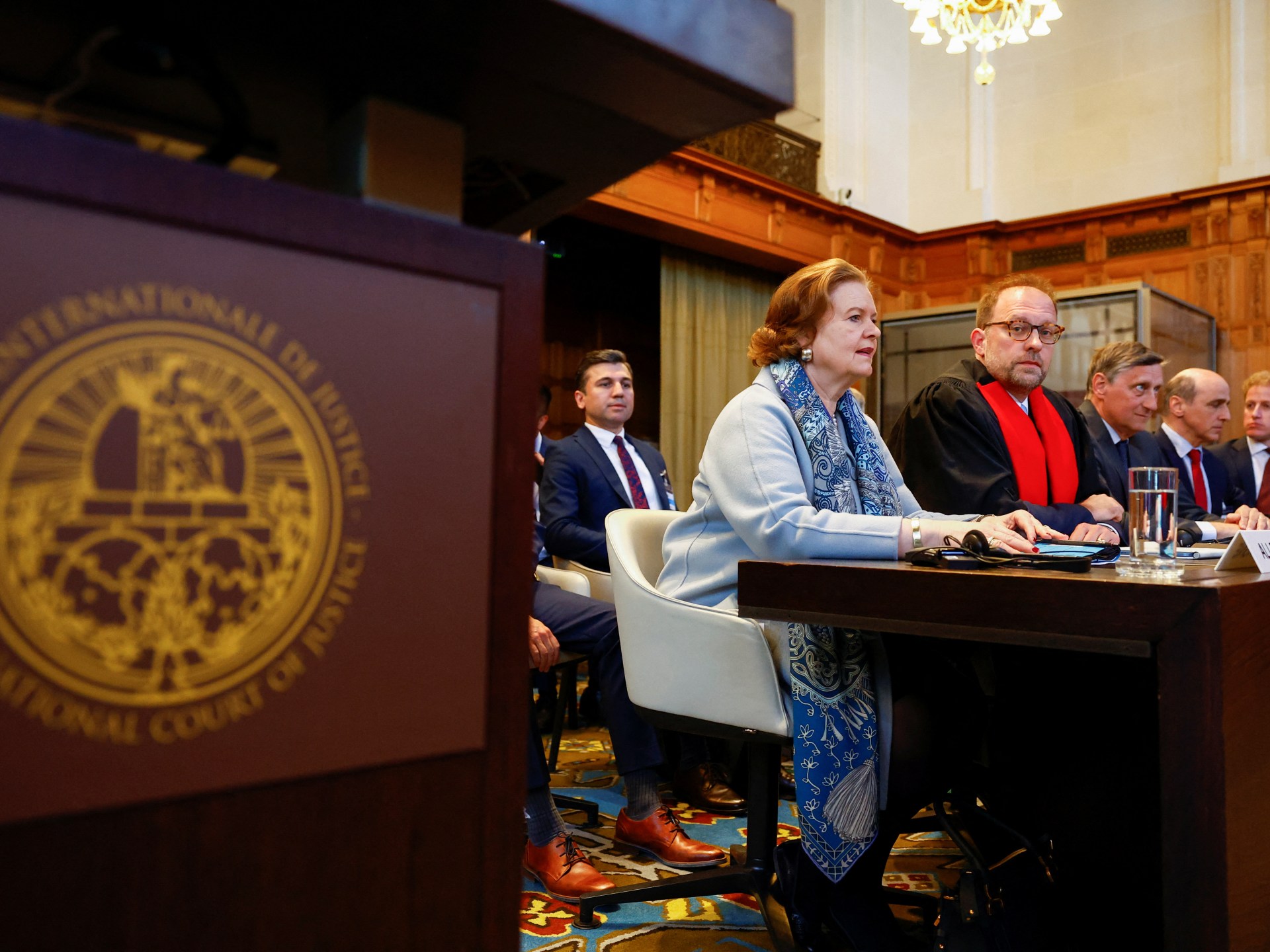- Joined
- Aug 12, 2023
- Runs
- 10,418
South Africa has accused Israel of “chilling” and “incontrovertible” intent to commit genocide in Gaza on the opening day of a landmark case before the UN’s top court at The Hague.
Calling on the International Court of Justice (ICJ) to order Israel to cease military operations in Gaza, lawyers for South Africa, said that Israel has gone beyond its intention to eradicate Hamas and is aiming to bring about the "the destruction” of the besieged territory’s population. Isreael was accused of breaching the UN Genocide Convention, with lawyers saying that even the 7 October attack by Hamas into Israel – during which around 1,200 people were killed and another 240 taken hostage – could not justify such actions.
South Africa’s justice minister, Ronald Lamola, opened Thursday’s session claiming that Israel has “crossed the line” with its bombardment of Gaza, with health officials in the Hamas-run territory putting the death toll at more than 23,000 people.
"The intent to destroy Gaza has been nurtured at the highest level of state," Tembeka Ngcukaitobi, advocate of the High Court of South Africa, told the court. "The evidence of genocidal intent is not only chilling, it is also overwhelming and incontrovertible," Mr Ngcukaitobi said.
Israeli Prime Minister Benjamin Netanyahu vehemently denied the allegations, saying that Israel is “fighting murderous terrorists who carried out crimes against humanity.”
"The hypocrisy of South Africa screams to the heavens," Mr Netanyahu added in a statement after the first hearing. Israel will offer its defence on Friday, but has repeatedly said it is doing its upmost to avoid cilivian casualities.
The case hits at the centre of Israel’s creation as a Jewish state in the aftermath of the Nazi Holocaust, which killed six million Jews. Enacted in the wake of that mass murder the UN Genocide Convention of 1948 defines genocide as “acts committed with intent to destroy, in whole or in part, a national, ethnical, racial or religious group”.
Israel has blamed Hamas for using civilians as human shields, but lawyers for South Africa told the court that Israel’s military response have gone beyond what is reasonable. “This killing is nothing short of destruction of Palestinian life,” said Adila Hassim, a South African lawyer and member of the delegation, said. “It is inflicted deliberately. No one is spared. Not even newborn babies.”
Post-apartheid South Africa has long defended the Palestinian cause, a relationship forged when the African National Congress' struggle against white-minority rule was backed by Yasser Arafat's Palestine Liberation Organisation. The intervention by South Africa, a state not involved in the war in Gaza, is extremely rare. But there is precedent – the Gambia took Myanmar to the ICJ in 2019 accusing it of genocide against the Rohingya.
Although the court's findings are considered binding on parties to the court, including both South Africa and Israel, the court has no way to enforce them. In 2022, the court ordered Russia to "immediately suspend military operations" in Ukraine following the invasion by Moscow, but that order was ignored. it was unclear whether Israel would heed any order to halt the fighting. If it doesn't, it could face UN sanctions, although those may be blocked by veto from Israel’s staunchest ally, the US.
The court is expected to rule on possible emergency measures to halt Israel’s military activities in Gaza later this month but will not rule at that time on the genocide allegations. Those proceedings could take years.
Joshua Krasna, an former diplomat for Israel, told The Independent that to many Israelis, the trial was “a clear example of a double standard”.
“The gap between how Israel truly sees itself in this conflict, and how it is viewed by much of the international community, is almost incomprehensible to Israelis,” he said.
In a sign of the tense atmosphere in which the case is being heard, competing demonstrations took place outside the court, with chanting occasionally able to be heard from inside the courtroom. Hundreds of pro-Israeli protesters marched close to the courthouse with banners saying "Bring them home," referring to the hostages still being held by Hamas.
At a separate demonstration, pro-Palestinians protesters gathered, some waving flags calling for an immediate ceasefire in Gaza. "What I hope is that they [the court] can achieve what has not been able to achieve until now, which is a permanent ceasefire, a safety corridor for humanitarian help so that the death toll doesn't go up even further," said Sara Galli, who took part in the demonstration.
Israel will be back on the International Court of Justice’s docket next month, when hearings open into a UN request for an advisory opinion on the legality of Israeli policies in the occupied West Bank and east Jerusalem.
Source: The Independent
Calling on the International Court of Justice (ICJ) to order Israel to cease military operations in Gaza, lawyers for South Africa, said that Israel has gone beyond its intention to eradicate Hamas and is aiming to bring about the "the destruction” of the besieged territory’s population. Isreael was accused of breaching the UN Genocide Convention, with lawyers saying that even the 7 October attack by Hamas into Israel – during which around 1,200 people were killed and another 240 taken hostage – could not justify such actions.
South Africa’s justice minister, Ronald Lamola, opened Thursday’s session claiming that Israel has “crossed the line” with its bombardment of Gaza, with health officials in the Hamas-run territory putting the death toll at more than 23,000 people.
"The intent to destroy Gaza has been nurtured at the highest level of state," Tembeka Ngcukaitobi, advocate of the High Court of South Africa, told the court. "The evidence of genocidal intent is not only chilling, it is also overwhelming and incontrovertible," Mr Ngcukaitobi said.
Israeli Prime Minister Benjamin Netanyahu vehemently denied the allegations, saying that Israel is “fighting murderous terrorists who carried out crimes against humanity.”
"The hypocrisy of South Africa screams to the heavens," Mr Netanyahu added in a statement after the first hearing. Israel will offer its defence on Friday, but has repeatedly said it is doing its upmost to avoid cilivian casualities.
The case hits at the centre of Israel’s creation as a Jewish state in the aftermath of the Nazi Holocaust, which killed six million Jews. Enacted in the wake of that mass murder the UN Genocide Convention of 1948 defines genocide as “acts committed with intent to destroy, in whole or in part, a national, ethnical, racial or religious group”.
Israel has blamed Hamas for using civilians as human shields, but lawyers for South Africa told the court that Israel’s military response have gone beyond what is reasonable. “This killing is nothing short of destruction of Palestinian life,” said Adila Hassim, a South African lawyer and member of the delegation, said. “It is inflicted deliberately. No one is spared. Not even newborn babies.”
Post-apartheid South Africa has long defended the Palestinian cause, a relationship forged when the African National Congress' struggle against white-minority rule was backed by Yasser Arafat's Palestine Liberation Organisation. The intervention by South Africa, a state not involved in the war in Gaza, is extremely rare. But there is precedent – the Gambia took Myanmar to the ICJ in 2019 accusing it of genocide against the Rohingya.
Although the court's findings are considered binding on parties to the court, including both South Africa and Israel, the court has no way to enforce them. In 2022, the court ordered Russia to "immediately suspend military operations" in Ukraine following the invasion by Moscow, but that order was ignored. it was unclear whether Israel would heed any order to halt the fighting. If it doesn't, it could face UN sanctions, although those may be blocked by veto from Israel’s staunchest ally, the US.
The court is expected to rule on possible emergency measures to halt Israel’s military activities in Gaza later this month but will not rule at that time on the genocide allegations. Those proceedings could take years.
Joshua Krasna, an former diplomat for Israel, told The Independent that to many Israelis, the trial was “a clear example of a double standard”.
“The gap between how Israel truly sees itself in this conflict, and how it is viewed by much of the international community, is almost incomprehensible to Israelis,” he said.
In a sign of the tense atmosphere in which the case is being heard, competing demonstrations took place outside the court, with chanting occasionally able to be heard from inside the courtroom. Hundreds of pro-Israeli protesters marched close to the courthouse with banners saying "Bring them home," referring to the hostages still being held by Hamas.
At a separate demonstration, pro-Palestinians protesters gathered, some waving flags calling for an immediate ceasefire in Gaza. "What I hope is that they [the court] can achieve what has not been able to achieve until now, which is a permanent ceasefire, a safety corridor for humanitarian help so that the death toll doesn't go up even further," said Sara Galli, who took part in the demonstration.
Israel will be back on the International Court of Justice’s docket next month, when hearings open into a UN request for an advisory opinion on the legality of Israeli policies in the occupied West Bank and east Jerusalem.
Source: The Independent







